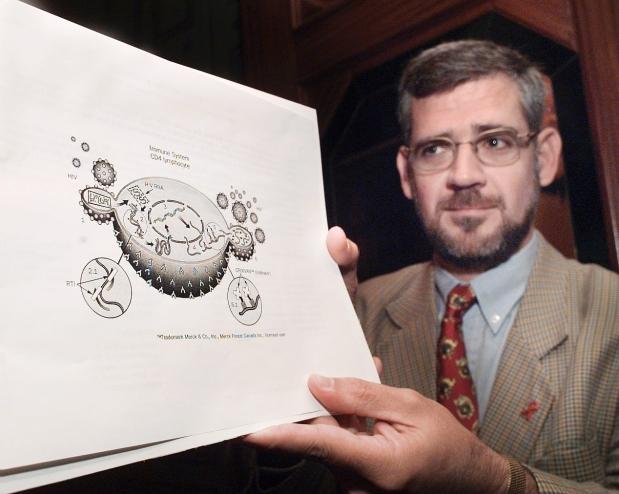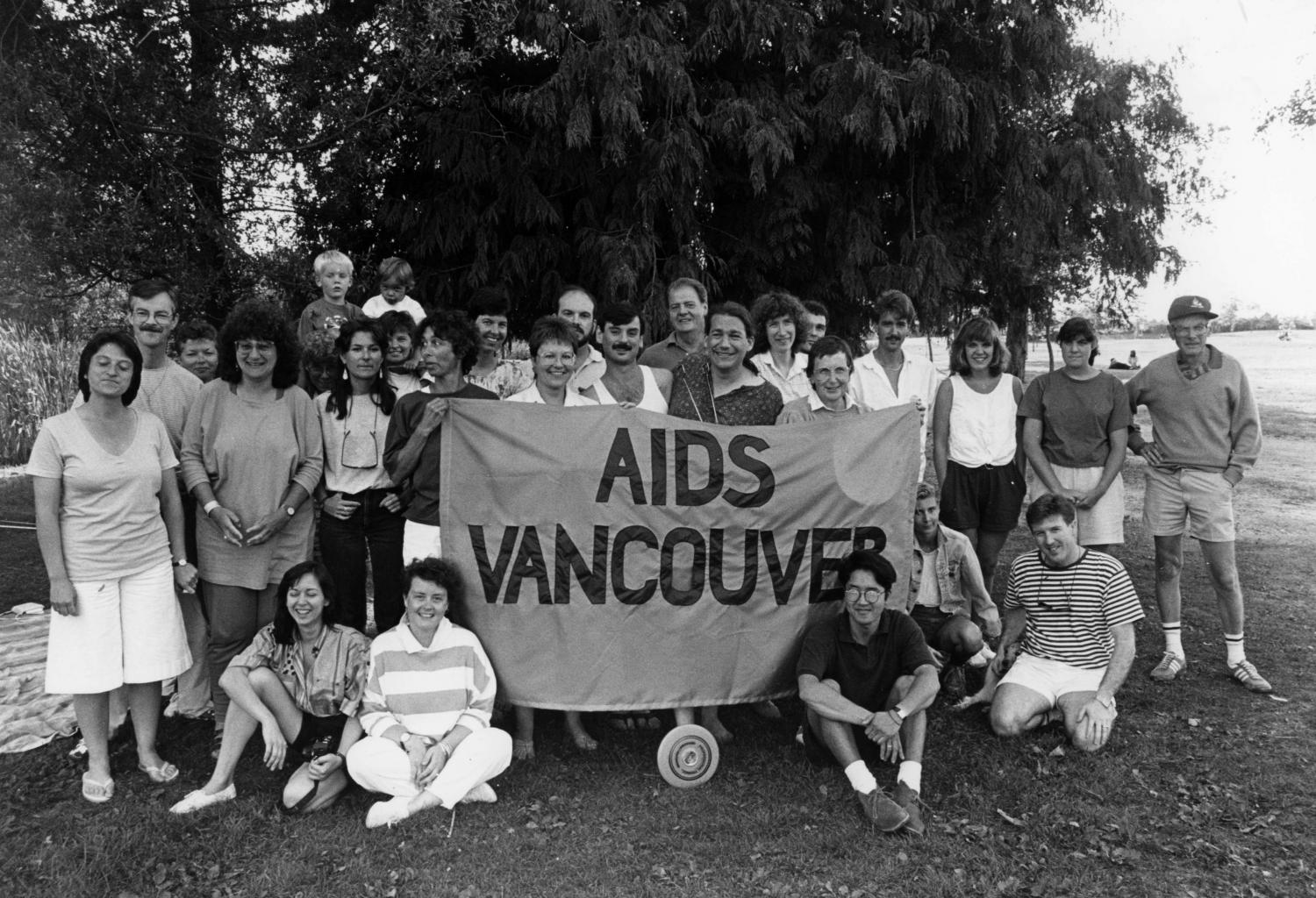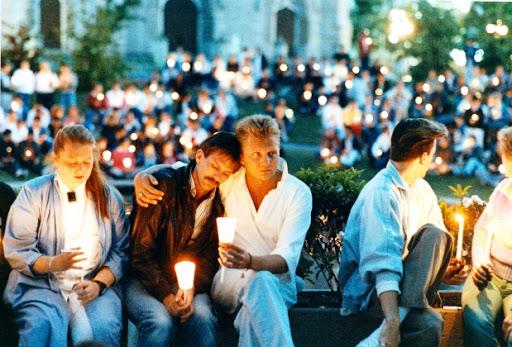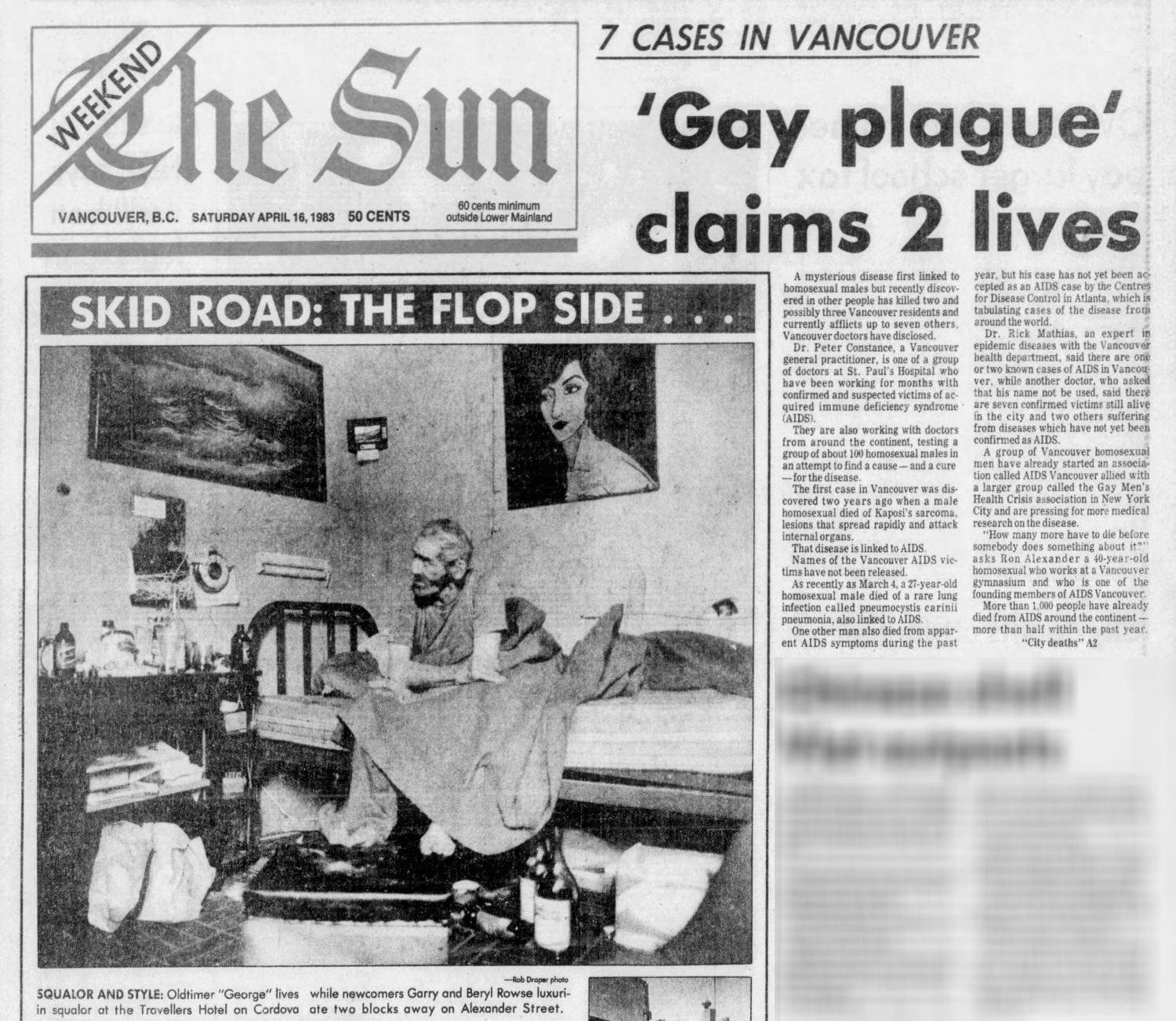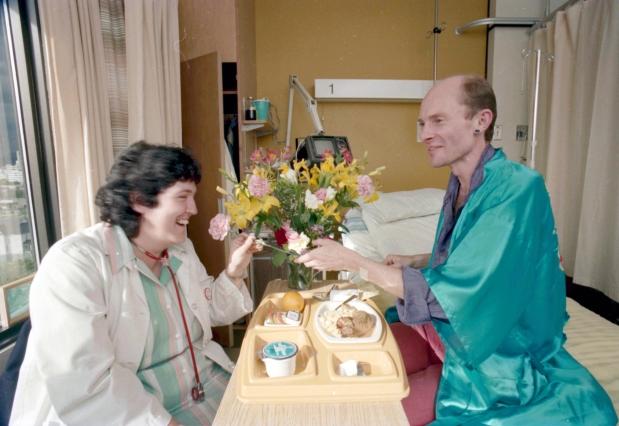AIDS Vancouver
Canada’s first AIDS organization forms to help fight an epidemic
Date: 1983
When Gordon Price first moved to Vancouver in 1978 as a young gay man, there was a sort of sheen to the city. “It was a magic moment,” he’d later tell reporters. “There was this incredible gay shift to Western Canada. You could show up, find an apartment and a job in the service industries that were emerging, and a beach, cruising trails, bars, clubs, restaurants, transit. It was ideal.” Vancouver’s West End in particular had emerged as a space of acceptance, only a few years after the decriminalization of homosexuality in 1969. It was “perhaps the greatest optimistic moment of our lives,” Price would say; a “golden age” of sorts.
This sheen would fade by the early 1980s. Tales had begun circulating of a deadly disease that had swept through gay communities in the United States, and some in Vancouver were getting nervous. Much was still unknown about AIDS, including how it spread, and the mystery enshrouding the epidemic made it only more ominous. Advice came from those on the frontlines in New York City: organize; be prepared. Heeding the call to action, Price and co-founder Noah Stewart would start AIDS Vancouver in 1983: Canada’s first AIDS service association, providing support to those affected by the virus.
Among its initiatives, the group would fight for better public health policy, access to quality healthcare for those infected, and education for the general public. At the centre of the crisis response was St. Paul’s Hospital in Vancouver’s West End neighbourhood. In early days when other hospitals would turn away suspected AIDS patients, St. Paul’s welcomed them. This was in large part thanks to the leadership of nurses, including Michael Welsh and Director of Nursing Irene Goldstone, who set up in-hospital education programs for staff, as well as a unit dedicated to palliative care. Welsh would quickly join the volunteer ranks of AIDS Vancouver, and ran programs including an AIDS hotline from his living room, offering counselling and advice on legal aid.
The fight against AIDS was a battle against stigma. Fear of the disease had added to existing homophobia, and violence against gay Vancouverites spiked in the 1980s. Tension peaked when Little Sisters, the West End’s gay book store, was bombed twice within two months. Stigma creeped into local politics, as well. Bill 34, a provincial piece of legislation which would have forcibly quarantined those with AIDS, was introduced in 1987 by British Columbia’s Vander Zalm government. Activists pushed back, saying that the money would be better spent on public education efforts. It was never passed. Instead, the City of Vancouver drew up a momentous new policy disciplining any public employee who discriminated against anyone with the disease: a victory for the movement, and a rebuke for the failed bill.
The fight was also a public health battle to understand and treat a deadly virus. On this front, a major victory was achieved in 1996 when a research team at St. Paul’s developed a treatment known as “triple therapy,” which suppressed viral replication. It would turn “an imminent death sentence into a chronic, manageable disease,” said Dr. Julio Montaner, who headed the research.
Thanks to the work of AIDS Vancouver and St. Paul’s, the outlook for those living with HIV/AIDS is much different than what it was four decades ago. “It’s a much more manageable disease for most people today,” Brian Chittock, AIDS Vancouver’s executive director, says. “There is talk of a cure, which will be amazing.” The organization continues in its mission, providing services to 7,000 people from across the world. Vancouver itself now has one of the lowest rates of infection in Canada: a victory largely owed to the proactive work of AIDS Vancouver, healthcare workers and leaders in the City of Vancouver and province of British Columbia who fought for the rights of AIDS patients.
Sources:
- “About.” AIDS Vancouver, www.aidsvancouver.org/who-we-are. Accessed 2 Apr. 2021.
- Cole, Yolande. “AIDS Vancouver Recognizes “heroes" at Inaugural Red Ribbon Awards.” The Georgia Straight, 4 Apr. 2014, www.straight.com/news/405646/aids-vancouver-recognizes-heroes-inaugural-red-ribbon-awards.
- Little, Simon, and Linda Aylesworth. “Pioneering B.C. HIV/AIDS Researcher Honoured on New Canada Post Stamp.” Global News, 16 Sept. 2020, globalnews.ca/news/7340415/pioneering-b-c-hiv-aids-researcher-honoured-on-new-canada-post-stamp.
- Ryan, Denise. “Heroes, Heartbreak & Hope: How AIDS Made Us Better.” Vancouver Sun, 21 Nov. 2013, vancouversun.com/Health/heroes-heartbreak-and-hope-how-aids-made-us-better/wcm/14a2174d-ba35-4a6e-bdd6-1650263acef7.
- Sciarpelletti, Laura. “‘We’ve Made Huge Strides’: AIDS Vancouver Celebrates Its 35th Anniversary.” CBC News, CBC, 18 Nov. 2018, www.cbc.ca/news/canada/british-columbia/we-ve-made-huge-strides-aids-vancouver-celebrates-its-35th-anniversary-1.4908043.
